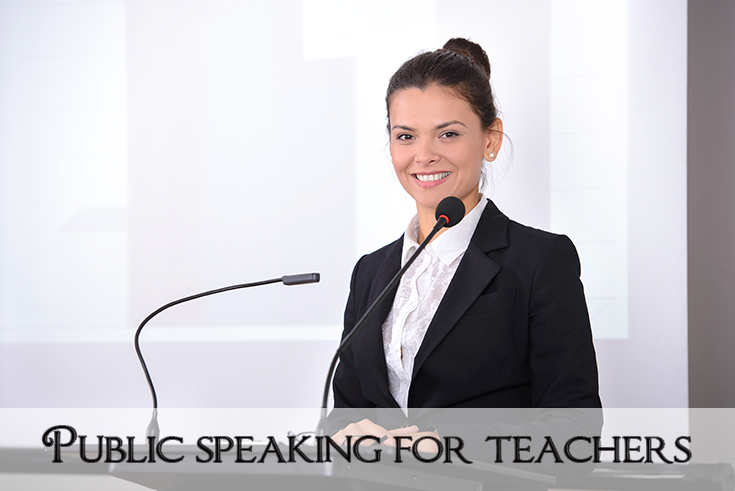Public Speaking For Teachers
Posted by Network Support · Leave a Comment
Most possess the confidence and skills to speak on a personal level, but public speaking is another thing altogether…
One of the essential characteristics of being an educator is the ability to communicate effectively. A person may be an expert on a particular subject, but if they are unable to communicate it well, the audience will not gain much.
While teachers often find it easier to speak to an individual or a small group, the thought of having to walk up to an audience and speak is one of the most dreaded occasions for people in all professions. As part of their occupational demands, educators are presented with speaking occasions on a regular basis. This makes it crucial for an educator to have the right attitude and the skills for speaking in public.
There are many different contexts where you, as an educator, may be required to speak to an audience. Each has its own set of challenges and demands. A teacher needs to consider certain information before standing up to speak to an audience effectively. Background information and an understanding of the context is a prerequisite to effective preparation and delivery. Along with this, one must have an understanding of the different types of public speaking assignments a teacher may be required to fulfill.
As a teacher, you are in a position to influence your students in many ways. You may aim to impart knowledge, instill in them a love for learning, and help them grow into successful, well-equipped young men and women. Here are some effective classroom teaching skills which are essential for your daily interactions with the students:
Skills required for the classroom
Interactive: Students are not passive listeners, but active participants. Lecturing is now being replaced by active learning and student engagement.
Flexible: A teacher must learn to adapt frequently, depending on the student response.
Creative: A teacher can use creative ways to present the lesson and encourage learning.
One of the greatest advantages of communicating in the classroom is that you are well acquainted with your audience. Knowing the strengths and weaknesses of your students can help you prepare your lesson in a way that can benefit students at different levels of performance. If you have students who are from a different culture, be considerate when giving examples, analogies and other related work.
Suggestions and Tips
Here are a few tips for an educator’s effective delivery:
Verbal skills: Remember to articulate well and pace your lesson depending on the ages and abilities in your classroom. Keep your vocabulary and content age appropriate.
Nonverbal skills: Your students can pick up many signals from your nonverbal communication. Have positive body language that encourages asking questions, participation and feedback.
Presentation Aids: Keep your presentation aids age relevant, interesting and creative.
Additional tips for the K-2 level:
- Speak slowly and articulate well. Use simple words and explain the meaning of new vocabulary. Ask questions and encourage student involvement.
- Smile frequently and speak with a warm, gentle and friendly tone.
- Listen well to what your students have to say. This is an excellent source of feedback that will help you reflect on the areas that need to be addressed.
- Call your students by name and maintain eye contact.
- When choosing props, opt for one that is simple: for example – a puppet, a plant, a pet, a card, or a ball.
- PowerPoint can be colorful and full of images, but use simple text.
- Boards can be used for drawing, games and teaching activities. For example, you can have an addition race by dividing the board in two and having two students solve sums on either side.
- Use videos to help teach the numbers, the alphabet, phonemes and reading skills.
As an educator, you communicate words of importance on a daily basis. The words you speak affect many. However, communication is not only about the words used, but the way a message is conveyed. What you communicate and the way you do it matters.
Like this article for teachers?
Browse the Professional Learning Board COURSE CATALOG to find related online courses for teachers in your state. Professional Learning Board is a leading provider of online professional development classes that teachers use to renew a teaching license or renew a teaching certificate.





